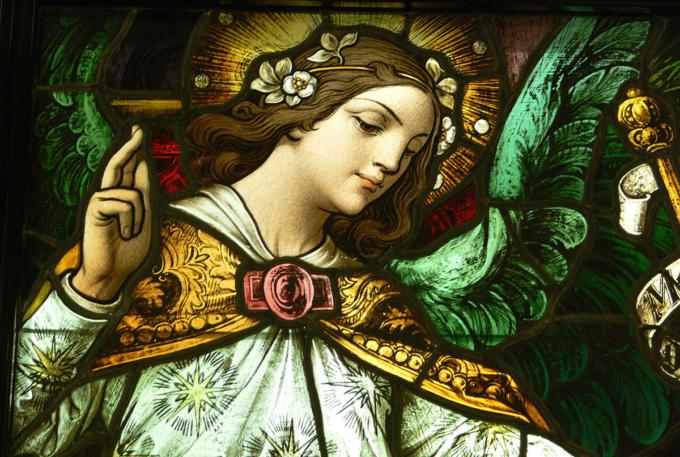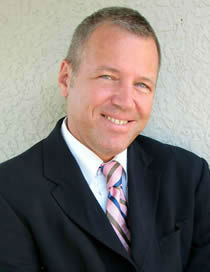
Spirituality
God is like a font of light and wisdom at the top of this hierarchy, pouring these gifts out upon the angels so that they flow down through them.

Pakaluk
intellectual historian I once knew used to say that you can really break through to understanding a deep thinker, if, when you encounter some bizarre passage, instead of dismissing it, you try to figure out what made an intelligent person want to write that. You might find that your own views are overturned at the end.
I was thinking of this advice when reading recently an article in the "Summa Theologiae" by St. Thomas Aquinas about whether angels can speak to one another (see Part I, question 107).
It's not the idea that one immaterial intellect can speak to another that I found strange. Suppose we say, as St. Thomas does, that when I form a thought in my own mind, it is as if I am speaking to myself. I form an "interior word," as St Thomas calls it. (Just now, as you were reading my last sentence, didn't you "say" the words to yourself, as you were thinking about that sentence?) Suppose that we also say that "to speak" (or call it "to communicate," if you wish), is to will to share one's thought with another -- just as you were thinking just now about what I just wrote, and what it means to speak to another, and you are able to will to share what you were just thinking with a person next to you who is not reading The Pilot right now.
You might say, "But it's mysterious how an immaterial mind by a mere act of the will can share, can make manifest, what it is thinking to another immaterial mind."
But is this mysterious, or is it, rather, unproblematic and obvious? Thinking, willing, communicating -- these are acts of persons par excellence, no? Surely, it is more mysterious how spoken sounds, among us, come to stand for thoughts, and mysterious, too, how, by an act of the will, I can move my mouth and throat to say those words -- when I know nothing about the musculature and nerves of the mouth and throat. And it is likewise mysterious that I am fully confident that my spoken words will convey my thought, and mysterious how it is clear to me that you understand me, after you do.
But as I said, it was not St. Thomas's idea that angels speak to one another that challenged me, but rather his additional claim that not everything that they say counts as the "enlightenment" of one by another.
I need to take a step back. St. Thomas, like many of the Church Fathers, believed that vastly more angels exist than human beings, and that these creatures are arranged over us hierarchically. God is like a font of light and wisdom at the top of this hierarchy, pouring these gifts out upon the angels so that they flow down through them. Higher angels become conduits of God's light and wisdom to lower angels, not mechanically, but personally, by deliberately assisting and instructing them, out of love. Since higher angels of their nature know more and know it more universally than lower angels, they can share what they know, thereby "enlightening" the lower angels. Lower angels in contrast, although they can speak to higher angels, never enlighten them.
"Because truth is the light of the intellect, and God Himself is the rule of all truth, the manifestation of what is conceived by the mind, as depending on the primary truth, is both speech and enlightenment," St. Thomas says. But when a lower angel speaks to a higher, he can only make manifest to the higher angel something about himself, for instance, what he wants, or what he wills. But this counts as "only speech," St. Thomas says, not enlightenment, because "the created will is not a light, nor a rule of truth; but participates in light. Hence, to communicate what comes from a created will is not, as such, enlightening. To know merely what you may will, or what you may understand, does not belong to the perfection of my intellect, but, rather, only knowing the truth in reality."
This was the thought that challenged me -- that what our society seems to prize most of all, the expression of our wills, might contribute nothing to the perfection or improvement of another.
In that single passage, I saw a flagrant rejection of "radical autonomy" and "the expressive self" -- philosophical views, which make the will prior to reason.
I saw, too, a diagnosis of the common phenomenon today, of groups who insist that others change what they believe is true about the world, because those groups want the world to be other than it is.
I thought of the phenomenon of relativism as well. You and I must "like," you and I must "validate" -- in most contexts -- what another says. But why? Because we must regard what this created will wants as a standard for us, rather than the manifestation of the truth. Because that other person wants me to affirm what that person wants to say, and wants to hear, rather than the truth, if these are different.
I thought finally of the theory of Hayek, that information diffused across an economy and communicated through the price mechanism. Yes, but not really information in the strict sense, at least not the enlightening kind.
In a couple of sentences, then, on what may have seemed a foolish topic -- an entire new world.
- Michael Pakaluk, an Aristotle scholar and Ordinarius of the Pontifical Academy of St. Thomas Aquinas, is a professor in the Busch School of Business at the Catholic University of America. He lives in Hyattsville, MD, with his wife Catherine, also a professor at the Busch School, and their eight children. His latest book is "Mary's Voice in the Gospel of John." You may follow him on X (twitter) @michael_pakaluk.
Recent articles in the Spirituality section
-
What is enlightenment? -- among angels and usMichael Pakaluk
-
The 'Catena Aurea': Read the Gospel this Advent with St. Thomas AquinasMichael Pakaluk
-
Focus on GodEffie Caldarola
-
Some thoughts upon returning from the second session of the synodBishop Robert Barron
-
The actual great transformationMichael Pakaluk


















